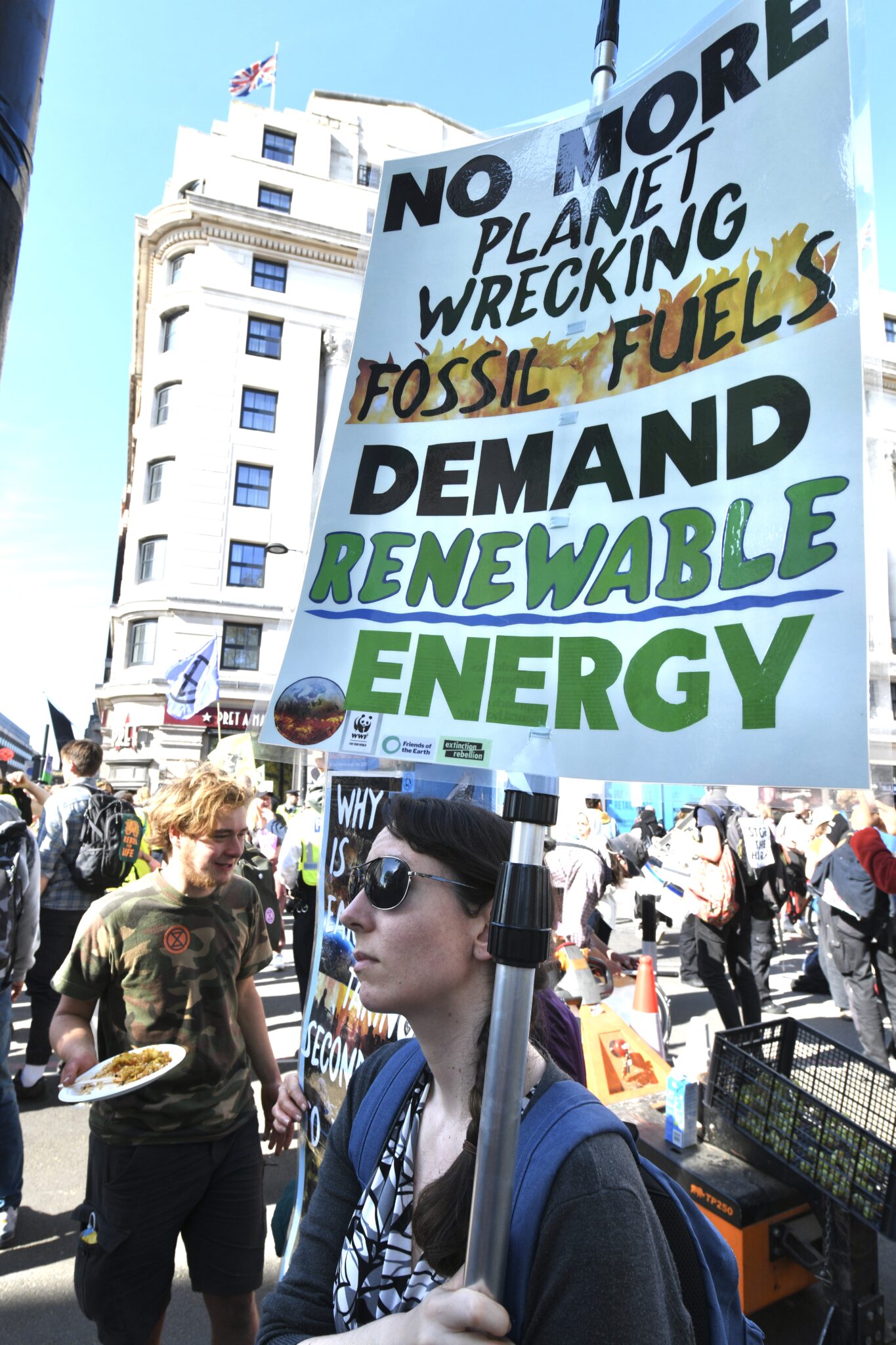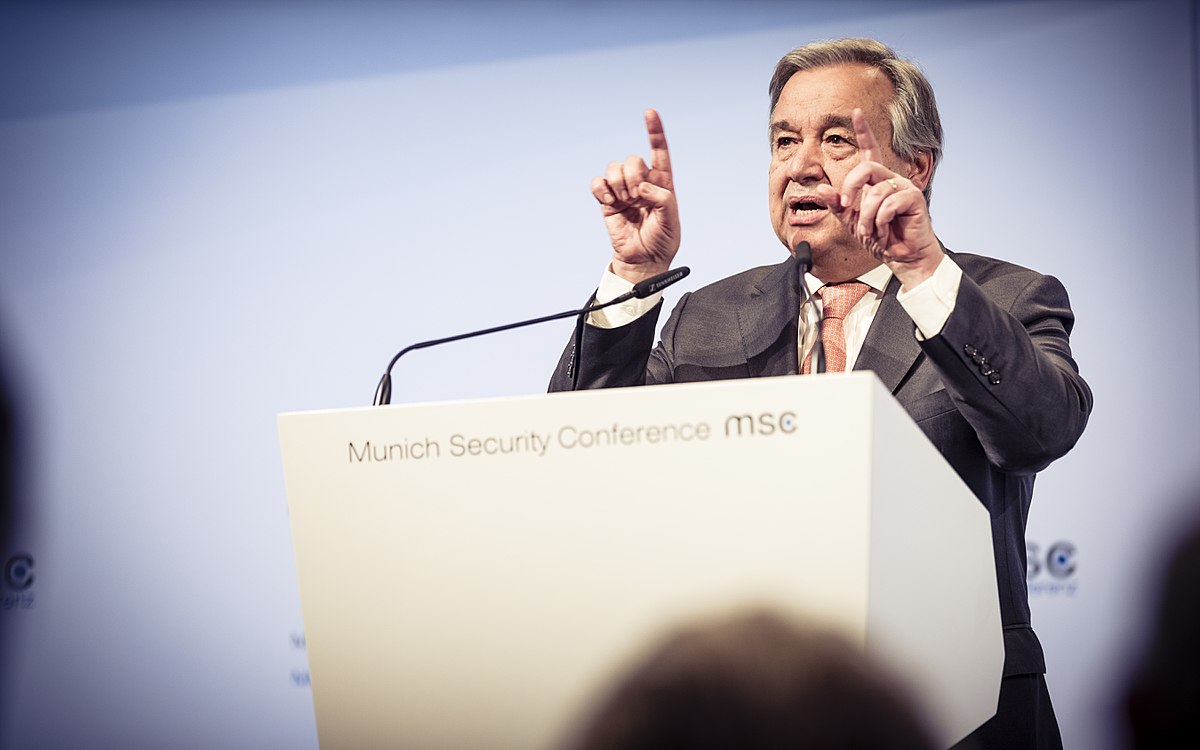‘Time to Do It for Real,’ Advocates Say as Biden Claims He’s ‘Practically’ Declared Climate Emergency

Original article by Julia Conley republished from Common Dreams under Creative Commons (CC BY-NC-ND 3.0).
“There’s nothing more important than what happens today,” said one environmental lawyer. “And there’s no person in the world with more power to do good than Joe Biden.”
In an interview with The Weather Channel Wednesday, U.S. President Joe Biden signaled he has no plans to formally declare a climate emergency, claiming that his climate policies are sufficient and that, “practically speaking,” a national emergency has already been declared.
When asked if he will take the unprecedented step in order to unlock executive powers to drastically cut fossil fuel emissions, Biden told correspondent Stephanie Abrams, “I’ve already done that.”
The president pointed to $368 billion that was included in the Inflation Reduction Act to invest in clean energy production, actions being taken to conserve land, and his decision to rejoin the Paris climate agreement as evidence that he is taking all the steps that experts have said are necessary to fight the climate crisis.
“We’re moving,” Biden said.
The interview aired days after a reporter asked White House Press Secretary Karine Jean-Pierre about the status of Biden’s reported climate emergency deliberations, noting that NASA climate scientist Peter Kalmus recently wrote in an op-ed that not declaring an emergency is “anti-science.”
Jean-Pierre did not directly address the question but defended Biden’s record, saying he “believes in science” and “talks about climate change.”
“And, you know, it is such a difference to what we see from Republicans who don’t even acknowledge climate change,” she added. “We’re going to continue to move forward to do everything that we can not just here in America, but globally, to be a leader in fighting climate change.”
Kalmus called Jean-Pierre’s response “barely coherent” and demanded to know why the White House won’t declare a climate emergency.
“It’s not enough for Biden to ‘practically’ declare a climate emergency,” said the Institute for Policy Studies on Wednesday after Biden’s interview aired. “It’s time to officially announce one.”
Last summer, Biden reportedly began considering declaring a climate emergency as extreme heat overtook much of the country.
As numerous climate action groups have outlined, a climate emergency declaration would be far from a symbolic gesture. The action, taken under the National Emergencies Act, would allow the White House to:
- Reinstate the federal ban on crude oil exports—lifted by Congress in 2015—which could slash fossil fuel emissions by as much as 165 million metric tons per year;
- End oil and gas drilling in more than 11 million acres of federal waters;
- Halt the investment of hundreds of billions of dollars in fossil fuel projects abroad; and
- Unlock federal funds that could be used to construct renewable energy infrastructure in communities that are especially vulnerable to climate disasters.
Biden’s comments came weeks after scientists said last month was the hottest month on record, with millions of people from Asia to Western Europe and the United States facing temperatures close to 130°F. The World Weather Attribution said in late July that the extreme heat would have been “virtually impossible” without the climate crisis and continued emissions of heat-trapping gases by the fossil fuel industry.
“As we suffer through these fossil fuel heatwaves, megafires, and floods, [Biden]’s leaving immense powers on the shelf for combating the crisis,” Kassie Siegel, director of the Climate Law Institute of the Center for Biological Diversity, told Common Dreams. “But now is the time for him to actually declare a climate emergency under the National Emergencies Act.”
Siegel added that by dismissing direct questions about an official climate emergency declaration, the White House appears to be employing “the oldest strategy in the book,” long used by administrations that have denied the climate crisis and the need to shift the renewable energy.
“The unfortunate reality is that doing some good things is simply not enough, because we are in a physical climate emergency,” Siegel said. “It is a question of survival and every day counts. There’s nothing more important than what happens today… And there’s no person in the world with more power to do good than Joe Biden.”
While the president has taken some steps to undo harm done to communities by extractive industries—announcing protections from uranium mining for one million acres near the Grand Canyon on Tuesday and launching a $20 billion initiative to invest private capital into clean technology projects last month—he also infuriated climate advocates and experts earlier this year when he approved the Willow drilling project in Alaska. The project could produce more than 600 million barrels of crude oil over three decades and lead to roughly 280 million metric tons of carbon emissions.
The White House also drew criticism last month for its announcement of new regulations for fossil fuel leasing, despite Biden’s campaign promise to ban oil and gas leases on federal lands.
“The truth is, the Biden administration has devastated communities and wildlife by backing disastrous fossil fuel projects from Alaska to Appalachia,” Siegel told Common Dreams. “And what he does today is going to make a huge difference for how much devastation comes in the future.”
Siegel added that with the United Nations set to convene a Climate Ambition Summit on September 20 in New York, “there has never been a better time for Biden to actually declare a climate emergency.”
At the summit, U.N. Secretary-General António Guterres aims to “accelerate action by governments, business, finance, local authorities, and civil society.”
The People vs. Fossil Fuels coalition, comprised of more than 1,200 advocacy groups, said it plans to mobilize ahead of the summit for a March to End Fossil Fuels in New York, aiming to “push President Biden to make a climate emergency declaration official and stop approving these deadly fossil fuel projects once and for all.”
“Now that President Biden says he’s ‘practically’ declared a climate emergency, it’s time to do it for real,” said the coalition. “The president should follow through on his rhetoric and immediately declare a national emergency that would unlock new executive powers to speed up the deployment of clean energy and halt fossil fuel expansion.”
Original article by Julia Conley republished from Common Dreams under Creative Commons (CC BY-NC-ND 3.0).




